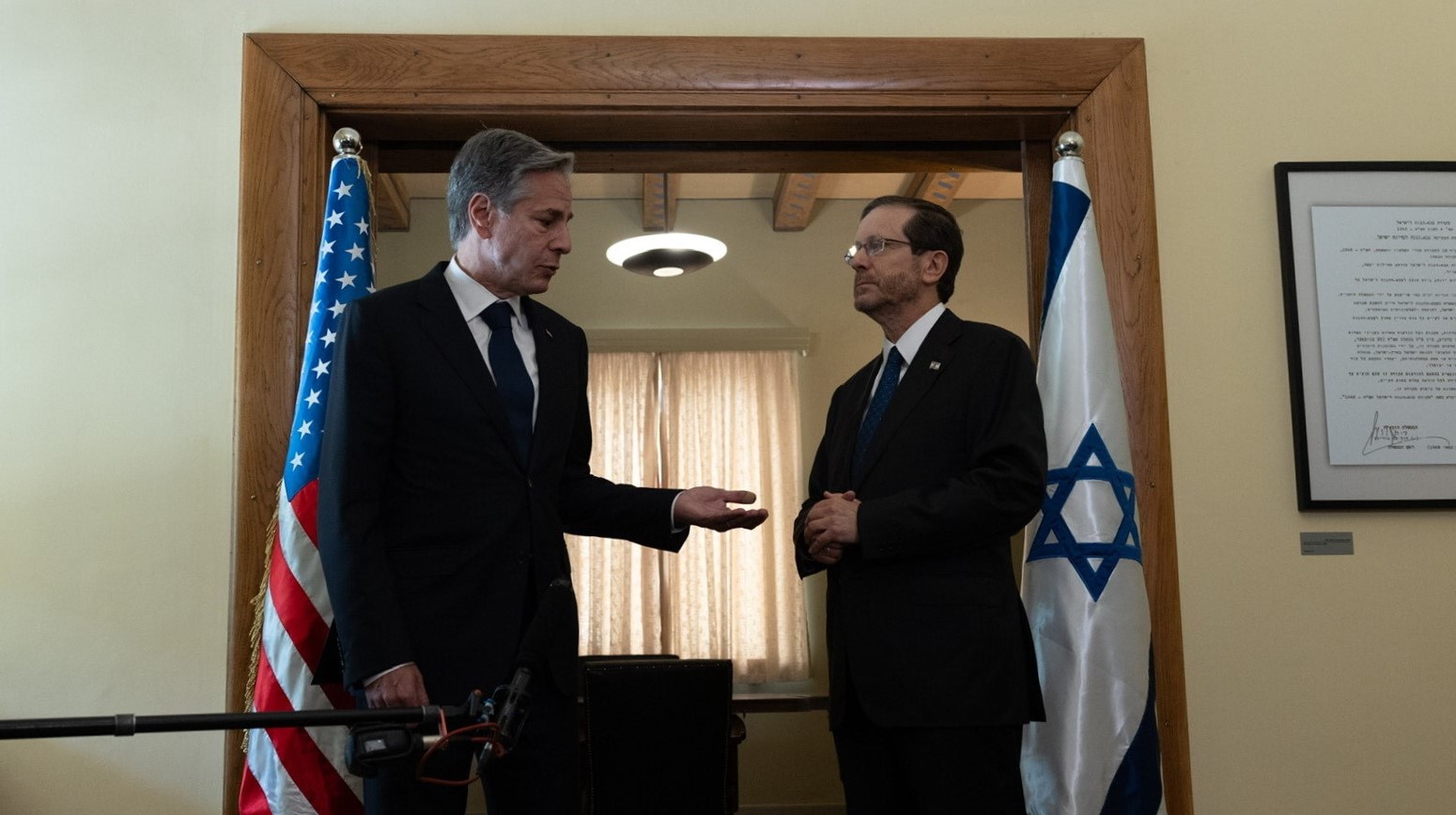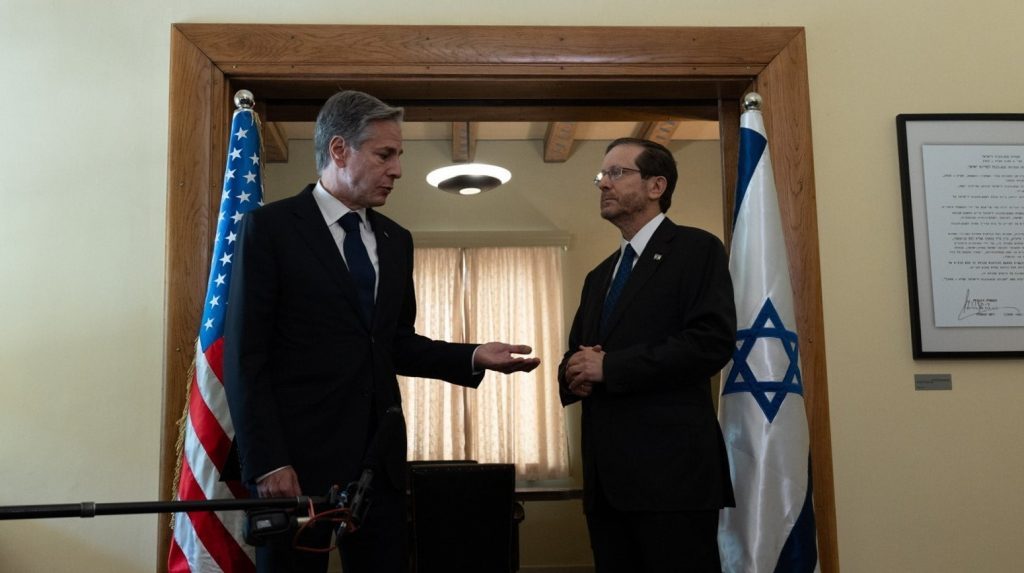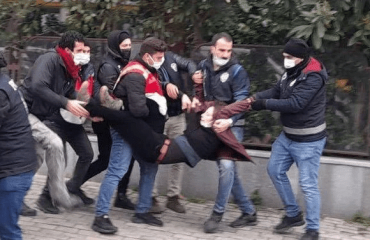

Before US Secretary of State Blinken’s visit to Türkiye, President Erdoğan said he would not sever relations with Israel but would not accept Netanyahu as an interlocutor. Photo shows Blinken with Israeli President Herzog (R) in Jerusalem on November 3. (Photo: X/Blinken)
Ahead of US Secretary of State Antony Blinken’s visit to Türkiye on November 5-6, President Recep Tayyip Erdoğan made an important statement on the Gaza crisis and relations with Israel. He said that severing relations with Israel over the Gaza crisis was not on the agenda, but that he would no longer deal with Prime Minister Binyamin Netanyahu.
Speaking to reporters on his plane on his return from the Summit of Turkic States held in Kazakhstan’s capital Astana on November 3, Erdoğan said, “Netanyahu is no longer an interlocutor for us in any way. We have written him off,” Erdoğan said. On the issue of relations with Israel, Erdoğan said, “Breaking ties completely, especially in international diplomacy, is not an option.” Erdoğan said he would decide after the Organization of Islamic Cooperation summit in Riyadh expected to be held on November 12.
Turkish Ambassador called back
One day after Erdoğan’s remarks, on November 4, the Foreign Ministry announced that the Turkish Ambassador to Tel Aviv, Şakir Özkan Torunlar, had been summoned to Ankara “for consultations”. The Foreign Ministry’s statement cited “the humanitarian tragedy in Gaza due to the Israeli side’s refusal to accept calls for a ceasefire, its continued attacks on the civilian population, and its refusal to allow uninterrupted and continuous humanitarian aid access” as the reason for the decision. Israel has withdrawn all its diplomatic parsonel from Türkiye, together with some other countries on security reasons.
Asked whether Türkiye would negotiate with Israel for a prisoner exchange role like the Russian-Ukrainian war, Erdoğan responded that İbrahim Kalin, the Director of the National Intelligence Organization (MİT), was in talks with both Israeli, Hamas and Palestinian Authority officials. Erdoğan said that cabinet members, especially Foreign Minister Hakan Fidan and MİT Director Kalın, are working to resolve the Gaza crisis by “using all the means of diplomacy”.
Erdoğan attributed the double standard of European countries regarding the killing of civilians in Israeli operations in Gaza to the guilt complex of the Holocaust, in which millions of Jews were massacred during the Second World War.
Erdoğan’s messages ahead of Blinken’s visit to Ankara also give an idea of the talks to be held.
Blinken’s Türkiye visit
The news that Blinken would visit Türkiye as part of his Middle East and Asia tour had not been officially announced for some time due to uncertainties. Sources in Ankara stated that the uncertainties stemmed mostly from the date of the visit and logistical problems. The visit was clarified by the US State Department’s announcement visit on November 4. Blinken, who left Israel for Jordan on November 3, is expected to arrive in Turkey on the evening of November 5 and official talks are expected to take place on November 6.
In Ankara, Blinken is expected to “reaffirm the U.S. commitment to working with partners to set the conditions necessary for a durable and sustainable peace in the Middle East, to include the establishment of a Palestinian state.” Ankara gives priority to the urgent need for a ceasefire. Washington, for its part, seems to be waiting for the end of Israel’s military operation in Gaza, which has so far killed thousands of civilians.
Blinken is also expected to raise the issue of Sweden’s NATO membership in Ankara. Erdoğan signed Sweden’s NATO protocol on October 23 and passed it for parliamentary approval. However, on his return from Kazakhstan, he said, “Unfortunately, no measures have been taken so far on the activities of the PKK terrorist organization in Sweden.” This indicates that parliamentary approval will not come immediately.
After Türkiye Blinken will reortedly visit Japan, South Korea and India.


